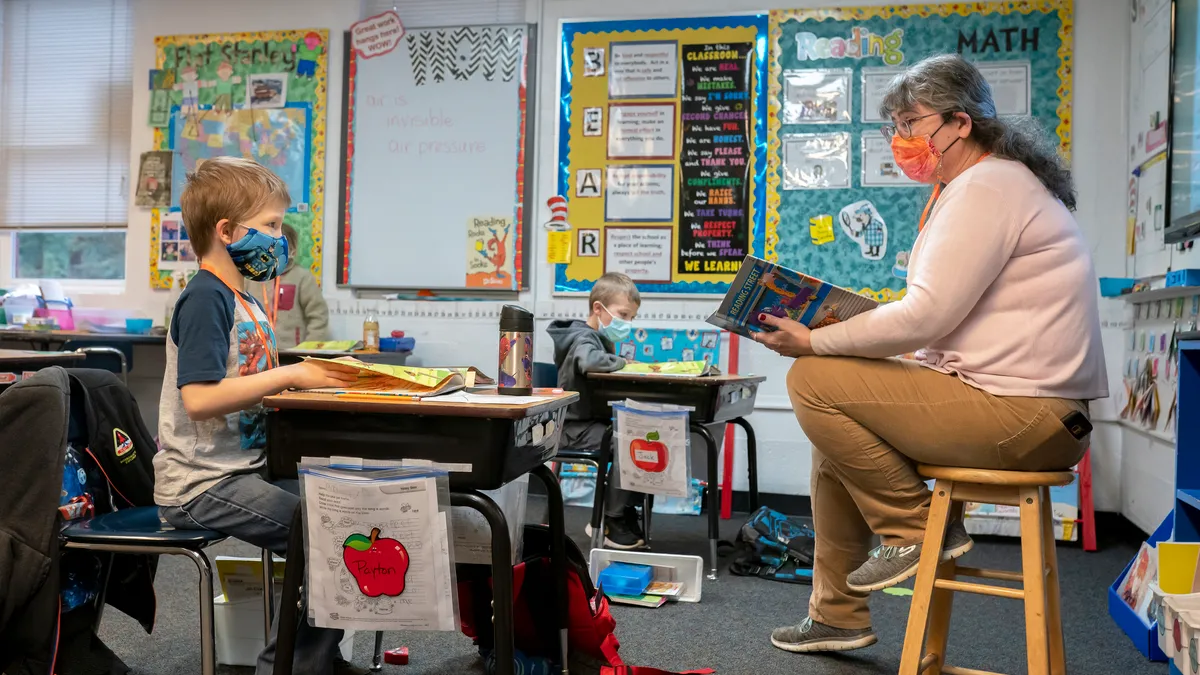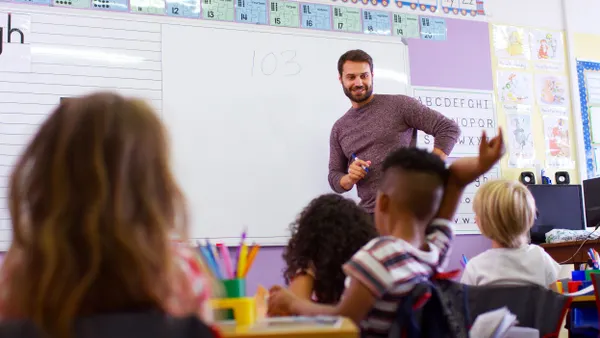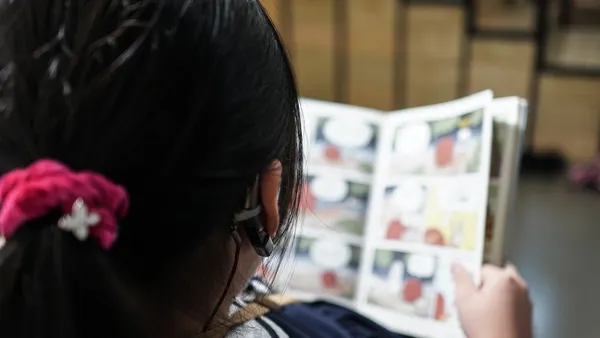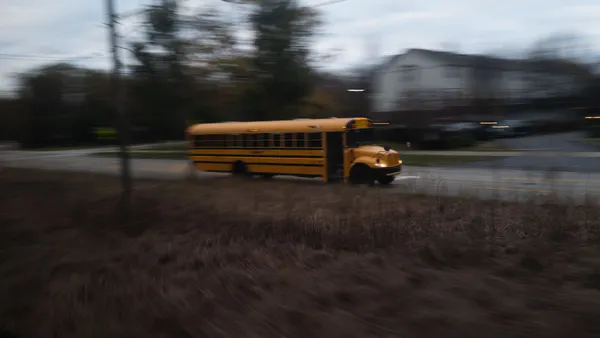Dive Brief:
- First-grade students who received literacy interventions from the popular Reading Recovery program saw negative long-term effects in statewide testing data years later compared to peers who did not participate, according to a new federally funded study presented at an American Educational Research Association conference in April.
- That data analyzes 9,000 students across 700 schools who began 1st grade in 2011-12 and were tracked through 2014-15 to understand the group’s state test scores on reading in 3rd and 4th grade. A set of students used Reading Recovery’s one-on-one lessons with the program’s expert teachers in 1st grade while the other group in the study did not.
- Questions remain about why students faced negative long-term effects, said Henry May, the study’s lead researcher and director of the University of Delaware’s Center for Research in Education and Social Policy. It’s possible the study proves Reading Recovery is an unsuccessful program or schools are not following up enough on reading interventions after 1st grade, he said.
Dive Insight:
This study is one of the first rigorous research practices to examine the long-term effects of a reading intervention program at such a large scale, May said.
The research reveals that either Reading Recovery needs to make significant changes or schools need to do a better job tracking student progress to ensure they don’t lose gains made in 1st grade.
“We know that the long-term impacts in this study are negative, what we’re not 100% sure of is whether we should be blaming the program for being harmful or whether we should be blaming the schools for not following up,” he said.
Previous research at the University of Delaware published in 2013 found substantial evidence Reading Recovery, which launched in 1984, can have positive short-term outcomes.
In a written response to the latest study on its long-term impact, the program cited previous data that found it has initial success for 1st-graders.
“This study does not provide enough evidence to make policy decisions or for districts to change policies or discard an intervention that has served children well,” Reading Recovery said. “At the very least, the study prompts schools and districts to conduct their own examination of long-term Reading Recovery outcomes.”
Other research is beginning to reveal the effects of the pandemic’s on-and-off school closures and its impact on learning loss. In fact, young elementary students are at-risk of falling behind in literacy skills than they were two years ago, according to a February report from Amplify that analyzed performance results from the Dynamic Indicators of Basic Early Literacy Skills assessment.
As schools look for highly effective reading intervention programs seeking to address this learning loss, May said it’s critical teachers and administrators search for evidence-based practices when possible. A good resource to start with is the U.S. Department of Education’s What Works Clearinghouse database, he said.
“Schools are in a position where they’re looking for interventions, looking for things to help catch kids up,” May said. “But who’s to say they’re going to select something that’s going to be worthwhile when most of the stuff out there has no high-quality evidence of impact. What it boils down to is who’s got the best marketing pitch.”
Educators and administrators should also update benchmarks to consider the pandemic’s effects, and they should regularly collect and monitor their data as they use these intervention programs, said John Strong, an assistant professor in the Department of Learning and Instruction at the University at Buffalo’s Graduate School of Education.
While Reading Recovery is a costly intervention, Strong said it’s important to consider that’s because students receive in-person, individual instruction. Other alternative intervention programs need to be studied, too, he said.
“There are other interventions that might look more cost-effective, like computer-based interventions,” he said. “What I would hate to see is schools maybe taking this study and saying, ‘Well, we need to find a cheaper option,’ without considering the evidence of effectiveness of those cheaper options, as well."








 Dive Awards
Dive Awards





